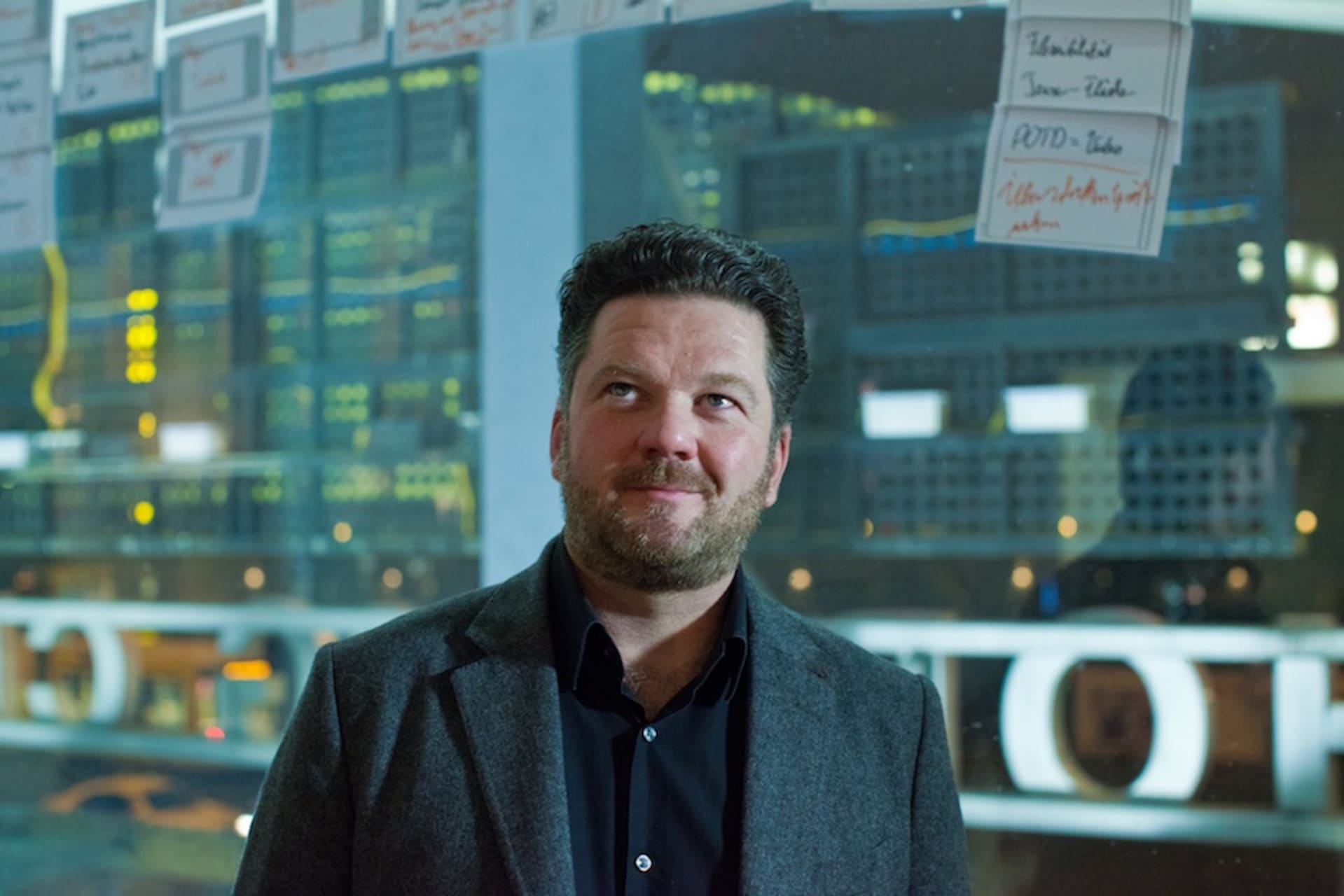
Pole recalls his Depeche Moment
In the next part of our series assessing the impact of Depeche Mode through personal narratives, German DJ and electronic music producer Stefan Betke—aka Pole—recalls the influence Depeche Mode had on him as a teenager in Dusseldorf, and beyond.
The very first time that I heard of Depeche Mode was through a music show on German television in 1981—I was 14 years old. I’m not part of the generation which saw the big musical developments between ‘75 and ’85, my active listening began in the late ‘70s and early 80s. However, I shared a room at my parents’ house with my older brother which meant I was exposed to a lot of music from that time. When I first saw Depeche Mode on TV I thought: ugly hairstyles, bad clothes and cheesy melodies. I was more interested in Richard Hell, Wire and the German punk band Hans-A-Plast, so seeing Depeche Mode on TV was alright and… That’s it.
Back then I already knew I wanted to be a musician. I was playing a Fender Rhodes in my school band, but for us it was unaffordable to buy a synthesiser or to even think about being a part of this new scene. I grew up in Dusseldorf and the bigger influence during that time was definitely Kraftwerk, who are obviously from Dusseldorf too. When I used to go out we’d see them in cafes. In our scene in Düsseldorf Depeche Mode were received as a purely pop phenomena; in conversations I had everyone said Depeche Mode were interesting, but, in the end, commercial. It took a while before it become apparent what their long term imprint on the music scene would be.
At this point in my life I was undergoing two angles of personal development, musically speaking. On the one hand I was into listening to punk; Hans-A-Plast, as I said, Chrome, as well as experimental jazz like John Lurie, John Zorn, Fred Frith etc. Yet at the same time, and as a musician, I was trying to learn what was possible in the musical language and how to use instruments, especially electronic instruments. This is where Depeche Mode’s worth came in, I saw the band as breaking through limits. They were the first people to introduce electronic music into a popular scene, before that it was really underground and only really focused on English scenes and Kraftwerk. Depeche Mode were using synthesisers to explore what everybody else said was a no-go area: not real guitar, not real drums, not this, not that. They tried to break the rules and go further, and they succeeded because it spread all over the world. This is what I appreciated about Depeche Mode from the early days onwards: the habit, the idea, the haltung. For me the haltung—the attitude—is a very important thing, it’s not a question of what you do but how you do it. In my opinion you’ve five percent talent and the rest is work. You have an idea but it’s the attitude that’s important, that you finish that work is important, and you have to go as far as possible. That is what I saw in Depeche Mode. They broke the rules, the purism of real instrumentalism, they went one step ahead.
Many years later I saw them at the Waldbühne in Berlin. I was totally focused on them, I was openminded enough to let them affect me. I was standing in the middle of the crowd listening to all these old tracks that I had on CD and vinyl, I thought by myself and in these surroundings, with this volume and this impact that they are producing, how Mr Gahan is acting with his body and how he is treating the microphone stand… I was like, that works. All the records before, they only worked for me on a production level. I remember I was listening to Construction Time Again, the album that was recorded at Hansa Studios, I was just sitting at home and thinking how can they have such a precise sound and such a huge stereo image? I was looking at it from a producer’s perspective rather than a musician’s. The thing is, when I first saw this concert I felt that there was something touching me.
Daniel Miller did come to me asking if I’d look to do a remix for them. I’d done some other remixes for artists on Mute before and the band wanted me to do one as well, so it was a mutual idea. Daniel was sitting at my home and said, “You can do whatever you want, but you can’t use the vocals.” The idea was an instrumental remix, which was fine with me because I prefer instrumental anyway. So I worked on it, did it, sent it over but I got told that the band said we couldn’t use it. Why? There were no vocals! I still have it, somewhere in my archive.~
Photo: Luci Lux
Published April 11, 2013. Words by Stefan Betke.
